Celebrating CAMB Graduates
2008Please join us in our celebration as we highlight our CAMB graduates.
The profiles are sectioned by degree type:
Doctor of Philosophy
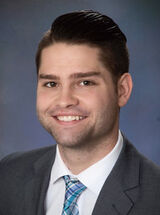
Charlie Bond
Mentor: Melike Lakadamyali, PhD
Microbiology, Virology, and Parasitology Program
Thesis Title: Multiplexed DNA-PAINT Imaging of the Heterogeneity of Late Endosome/Lysosome Protein Composition
Mentor Comment: Charlie’s thesis worked used cutting-edge multiplexed and quantitative super-resolution microscopy methods to visualize multiple lysosomal proteins simultaneously at single organelle resolution. He revealed, for the first time, that lysosomes exist in distinct molecular subpopulations, each containing a unique combination of lysosomal proteins. These findings have opened an entirely new avenue of research in my lab and multiple national and international research groups have reached out to collaborate to extend these findings, underscoring the impact of Charlie’s work. In addition to his own science, Charlie has worked collaboratively to disseminate the cutting edge imaging technologies both within the lab and to collaborators and he is a well-deserved co-author on several papers. Beyond his exceptional research accomplishments, Charlie has been a transformative force in our department’s culture, spearheading multiple initiatives, including the creation of DOPAMINE (Department of Physiology Alliance for Mentorship, Interconnectedness, Networking, and Enrichment), which has played a crucial role in fostering a sense of belonging for trainees and staff. Charlie is the full package—an intellectual powerhouse, a master of cutting-edge technologies, a great team player and a dedicated advocate for a better scientific community. He has left a lasting mark on my lab and he will be missed.

Dominique Brooks
Mentor: Kiran Musunuru, MD, PhD
Gene Therapy and Vaccines Program
Thesis Title: Developing base editing and prime editing therapies for the treatment of phenylketonuri
Research and Lab Description: The Musunuru lab develops CRISPR-based gene editing therapies to treat metabolic disorders and other genetic conditions. My thesis focused on developing curative CRISPR editing therapeutics for the treatment of phenylketonuria, the most common inborn error of metabolism.
Post PhD Plans: I am currently working at a start-up based in Boston.
Mentor Comment: Dominique was a valued member of the lab whose leadership, enthusiasm, and collaborative spirit made her an excellent researcher and I have no doubt she will make a lasting impact in the field.
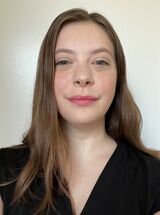
Elizabeth Burton
Mentors: Struan Grant, PhD; Casey Brown, PhD
Genetics and Epigenetics Program
Thesis Title: Variant-to-function mapping of late-onset Alzheimer’s disease GWAS loci in human microglial models implicates RTFDC1 at the CASS4 locus
Research and Lab Description: I had the pleasure of being co-mentored by Struan Grant and Casey Brown, whose labs study complex human disease genetics through both computational and wet lab methods. My thesis sought to characterize the functional role of a novel Alzheimer’s disease GWAS-associated variant-enhancer pair in microglia.
Post PhD Plans: In October 2024, I began a postdoctoral position at the Broad Institute in the labs of Melina Claussnitzer and JT Neal, studying metabolic disease genetics through the use of optical pooled screening. Despite now living in Boston, I’m still a Philly sports fan for life!
Mentor Comment: Beth spent several years interning in my lab while completing her degree at Gettysburg College. This experience provided the perfect foundation for her to join my group as a graduate student, where she exceled. Beth’s commitment paid off, uncovering a new mechanism at an established Alzheimer's disease genetic locus and identifying both a causal variant and the corresponding effector gene. Beth’s accomplishments are particularly remarkable given the many challenges she faced during her graduate work, including the COVID pandemic and the passing of her co-mentor, Dr. Casey Brown. Good luck with your future career trajectory Beth!
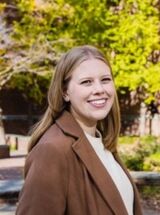
Kelly Clark
Mentor: Elizabeth Bhoj, MD, PhD
Genetics and Epigenetics Program
Thesis Title: Investigating the cellular phenotypes of the H3.3 associated neurodevelopmental disorder Bryant-Li-Bhoj syndrome
Mentor Comment: Kelly's insightful thesis focused on solving the mystery of how mutations in Histone 3.3 lead to neurologic symptoms in patients. She skillfully combined both wet bench and computational research to provide new clues into how this protein works both in the typical and patient brain.
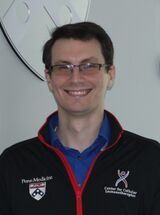
Perry Demsko
Mentor: Stefano Rivella, PhD
Gene Therapy and Vaccines Program
Thesis Title: Lentiviral gene therapy provides robust protection against pancytopenia in an inducible Codanin-1 knockout mouse model
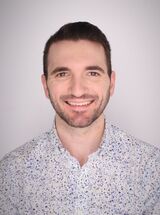
Alexander Dimitri
Mentor: Joseph Fraietta, PhD
Developmental, Stem Cell, and Regenerative Biology Program
Thesis Title: Targeted Engineering of CAR T Cells to Overcome Barriers for Therapeutic Success
Mentor Comment: Alex is an exceptionally dedicated and insightful scientist whose innovative thinking and rigorous approach have consistently set him apart. His ability to navigate complex challenges while collaborating effectively with colleagues has made a significant impact on our projects. It has been a genuine pleasure mentoring him, and I am confident his continued pursuit of excellence will lead to many future successes.
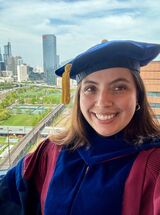
Alejandra Fausto
Mentor: Susan Weiss, PhD
Microbiology, Virology, and Parasitology Program
Thesis Title: Characterizing dsRNA-Induced Immune Responses During Seasonal Human Alphacoronavirus Infection
1f8e
Mentor Comment: Alejandra joined our lab during the initial stages of the pandemic, a very stressful time. Her project was to work on the common human coronaviruses, that in contrast to sARS-CoV-2 were not at all well studied. She established methods to work with these viruses and helped many other labs use these techniques. She then went on to investigate how these viruses interact with host cell innate immune responses. Alejandra is a generous person always willing to help others in the lab.
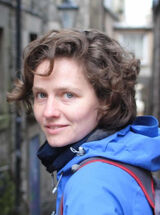
Annabel Ferguson
Mentor: De'Broski Herbert, PhD
Microbiology, Virology, and Parasitology Program
Thesis Title: Hookworms Dynamically Respond to Loss of Type 2 Immunity
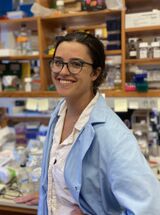
Elizabeth Gallagher
Mentor: Erika Holzbaur, PhD
Developmental, Stem Cell, and Regenerative Biology Program
Saul Winegrad Award for Outstanding Dissertation
Thesis Title: Mechanisms regulating the clearance of damaged lysosomes
Research and Lab Description: Throughout my thesis work, I investigated mechanisms facilitating the selective autophagy of stressed lysosomes via the selective autophagy adaptor p62, discovering a novel mechanism by which p62/SQSTM1 utilizes the small heat shock protein HSP27 to prevent p62 aggregation. It was truly one of the greatest privileges to learn from Erika Holzbaur and the members of her group, experts in neuronal cell biology and mechanisms of neurodegeneration.
Post PhD Plans: I am currently a post-doc at the Salk Institute.
Mentor Comment: Liz Gallagher is simply spectacular. She displays the curiosity, intellect, motivation, vision, and love for science that you only see in the very best. During her time in my lab, she steered her thesis project forward at a remarkable pace, resulting in two novel and creative first-author papers on the mechanisms and regulation of lysophagy, the clearance of damaged lysosomes via autophagy. Just as remarkably, Liz made my lab a better place to be, due to the leadership and mentorship she modeled on a daily basis. Overall, Liz is a remarkable combination of scientific brilliance and thoughtful kindness – a very bright star.
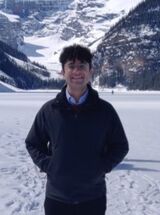
Rumi Habib
Mentor: George Shaw, MD, PhD
Microbiology, Virology, and Parasitology Program
Thesis Title: HIV-1 Env-Antibody Coevolution in SHIV-Infected Rhesus Macaques as a Molecular Guide to V2 Apex Broadly Neutralizing Antibody Elicitation
Mentor Comment: Rumi was an exceptional graduate student who tackled a challenging and timely scientific question: Why does only a small fraction of HIV-1 infected individuals develop broadly neutralizing antibodies (bNAbs), and how can the answer to this question guide HIV-1 immunogen design? In a series of published manuscripts, Rumi showed that the efficiency of B cell priming is the principal obstacle to bNAb elicitation, and that structure-guided and mammalian display evolution-guided mutations in the V1V2 segment of the HIV-1 Env could substantially enhance vaccine-induced germline targeting and bNAb elicitation.
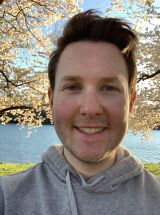
Matthew Haemmerle
Mentor: Doris Stoffers, MD, PhD
Genetics and Epigenetics Program
Thesis Title: RNA BINDING PROTEINS PCBP1 AND PCBP2 PROGRAM PANCREATIC β CELL CONTROL OF GLUCOSE HOMEOSTASIS
Research and Lab Description: My thesis focused on elucidating how the RNA binding proteins PCBP1 and PCBP2 shape core processes and mRNA programs critical for insulin producing beta cell function and survival. The Stoffers’ lab focuses on understanding the development, maintenance, and regeneration of pancreatic islet beta cells that produce the hormone insulin critical for normal glucose homeostasis. I am grateful to have had Doris as a supportive mentor for my thesis work and wonderful colleagues to work with in her group
Post PhD Plans: I will be staying on in my PhD lab to wrap up a second project from my dissertation work.
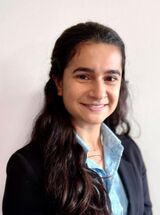
Michaela Helble
Mentor: Daniel Kulp, PhD
Gene Therapy and Vaccines Program
Thesis Title: Structure and Sequence Engineering of Nucleic-acid Delivered Antibodies and Nanoparticle Vaccines
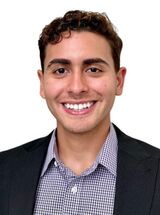
Kevin Hernandez
Mentor: Joseph St. Geme III, MD
Microbiology, Virology, and Parasitology Program
Thesis Title: Virulence properties of the pediatric pathogen Kingella kingae
Mentor Comment: Kevin has developed into an outstanding scientist. His thesis work provided major advances in our understanding of virulence determinants in Kingella kingae, an emerging pediatric pathogen. In particular, he discovered a novel K. kingae outer membrane lipoprotein that binds human factor H and mediates high-level resistance to complement-mediated serum killing, promoting bacterial intravascular survival and facilitating dissemination to bones and joints. In addition, he established that the K. kingae type a and type b polysaccharide capsules have unique pathogenic properties, accounting for the observation that strains producing the type a or type b capsule account for over 95% of invasive K. kingae disease. Beyond his own work, he consistently offered important perspectives on the work of other members of the lab.

Beatrice Herrmann
Mentors: Igor Brodsky, PhD
Microbiology, Virology, and Parasitology Program
Thesis Title: Understanding Macrophage Responses to Salmonella enterica Replication
Research and Lab Description: The Brodsky lab studies immune defense against enteric bacterial pathogens such as Salmonella and Yersinia. In particular, the lab studies innate immune control via programmed cell death in the face of bacterial infection. I started studying in the lab by studying clinical isolates of Salmonella to help further our understanding of innate immune responses to more clinically relevant Salmonella strains. Igor Brodsky is an incredible mentor who is always caring and supportive of all. I am lucky to have found my way into the lab and spent so much time with such a great scientist and with all the other phenomenal scientists in our lab.
1e85
Mentor Comments: Beatrice was a fantastic PhD thesis student. Beatrice joined my lab in June 2019 and took her preliminary exam in Spring 2020. Despite the lab lockdown that started in Spring 2020, and all the challenges associated with the pandemic, Beatrice showed great perseverance and resilience. Beatrice developed a totally new line of investigation in the lab to define the interactions between clinical Salmonella isolates and the inate immune system. Beatrice was always curious and had broad interests both within and outside the lab. Her engagement, enthusiasm, and humor made contributed to the lab environment in so many ways. Beatrice co-authored multiple manuscripts and a seminal review on bacteria-host interactions. Beatrice also mentored multiple rotation students and younger lab members. I feel so fortunate to have been her PhD advisor and mentor. Congratulations Beatrice!
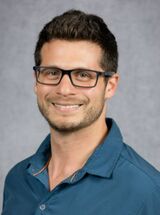
Jacob Hoffman
Mentor: James Wilson, MD, PhD
Gene Therapy and Vaccines Program
Thesis Title: Modulation of the AAV9 Galactose Binding Pocket Yields Novel Gene Therapy Vectors and Predicts Cross-Species Glycan Profiles
Mentor Comment: Jake’s inherent curiosity was effectively channeled in his PhD thesis on AAV vectors. He brought to the project a compelling mix of biochemistry, gene therapy, and virology. Jake made great progress during his time with us. I am sure he will be very successful in the next chapter in his journey in science.

Coral Kasden
Mentor: Hansell Stedman, MD
Gene Therapy and Vaccines Program
Thesis Title: Durable cardioprotection by AAV9-μUtro gene therapy for Duchenne muscular dystrophy
2220
Research and Lab Description: My thesis work demonstrated that our gene therapy for Duchenne muscular dystrophy was protective in the murine against cardiac injury and maladaptive cardiac remodeling, and protection was durable out to 10-months post-treatment or the human equivalent of age 40. My PhD lab was the lab of elite athletes. My PI had trained at the Olympic training center for cross country skiing and still competes at Master's World Championships, my labmate runs marathons, and I competed for the U.S. Team in rowing 3 times during my PhD. Grateful for an environment that supported both scientific and athletic passions.
Post PhD Plans: I am currently working as a post-doc in my PhD lab but disclaimer -- we are on track with the NIH and FDA to a clinical trial for our gene therapy for kids with Duchenne muscular dystrophy. I am honored to be in a position to see 30 years of work in this field finally translate from bench to bedside.

Victoria Lovins
Mentor: Elizabeth Grice, PhD
Microbiology, Virology, and Parasitology Program
Thesis Title: Impact of Staphylococcus aureus Strain-Level Variation on Cutaneous Leishmaniasis
Mentor Comment: It was a distinct pleasure and honor to be Victoria (Tori) Lovins’ PhD mentor. Tori showed incredible perseverance, determination, and commitment during the course of her studies, despite multiple severe disruptions that threatened to derail her work, including a pandemic and a lab fire. Tori produced a body of work that was technically challenging and required her to pioneer several new models and techniques to analyze host-microbiota-parasite interactions. As our lab’s resident expert in interpreting flow/immunology data, she selflessly contributed to a wide range of projects. Her dissertation, which was also supervised by Dr. Phil Scott, bridged basic science with translational studies to understand the mechanisms whereby the colonizing microbiota mediates the severity of cutaneous leishmaniasis infections. In addition to being a stellar scientist, Tori is also one of the kindest, most empathetic and aware people I have had the opportunity to train. We in the Grice and Scott labs are so proud and wish her all the best as she pursues post-doctoral training in Sweden!
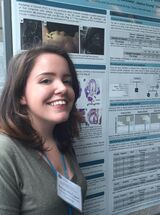
Brittany MacTaggart
Mentor: Anna Kashina, PhD
Cell Biology, Physiology, and Metabolism Program
Saul Winegrad Award for Outstanding Dissertation
Thesis Title: Midchain arginylation of ⍺-tubulin at E77 regulates microtubule dynamics via MAP1S
Mentor Comment: Brittany is a very talented young scientist who combines competency, creativity, imagination, knowledge, and perseverance to produce exceptional quality work. During her Ph.D., she has developed into one of the best scientists I ever worked with. She is a brilliant researcher with a bright future ahead of her, and she definitely belongs with the very best. I feel very proud to have contributed to her growth.
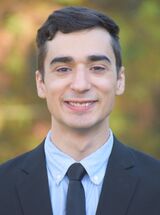
Andrew Marques
Mentor: Frederic Bushman, PhD
Microbiology, Virology, and Parasitology Program
Thesis Title: SARS-CoV-2 Evolution and Transmission: Within-host, Between-host, and Between-Species
Research and Lab Description: During my thesis I studied how viruses like SARS-CoV-2 evolve within a host during drug treatment and prolonged infection, within a population during vaccination, and between species in spillover events. The Bushman Lab is a group of diverse and compassionate scientists who created an environment that helped me grow both personally and professionally, offering invaluable support in computational work and at the bench
Post PhD Plans: I am the project manager of the Penn Virome Characterization Center, one of five centers across the country that comprise the Human Virome Program.
Mentor Comment: Andrew was a tremendous pleasure to have as a PhD student. He completed a whopping five first author papers, and several second author papers as well. He led the sequenced-based survellance of SARS-CoV-2 for the whole Delaware Valley, and used sequence data and other data to learn a great deal about infection in humans and other mammals. He is also exceptionally creative, contributing a wide range of highly innovative artworks to the Penn community.
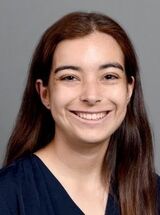
Lydia Mendoza
Mentor: Scott Hensley, PhD
Microbiology, Virology, and Parasitology Program
Thesis Title: Antigenic Evolution and Correlates of Protection in Seasonal Influenza: Insights from H1N1 and H3N2 Circulation
207b
Mentor Comment: Lydia completed exciting experiments at the interface of basic science and clinical microbiology. Her studies have increased our knowledge about the types of immune responses elicited by influenza viruses, and how these viruses change to evade antibody responses. It was a pleasure to mentor Lydia and we look forward to seeing her move on to the next chapter of her career.
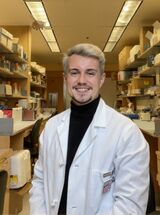
Daniel Morris
Mentor: George Shaw, MD, PhD
Microbiology, Virology, and Parasitology Program
Thesis Title: Transient glycan-shield reduction induces broadly neutralizing HIV-1 antibodies in SHIV-infected rhesus macaques
Research and Lab Description: The Shaw lab is interested in deciphering the virus-antibody co-evolution that occurs in a rhesus macaque model of HIV infection to inform vaccine design. During my PhD, I designed two novel infection models to increase the frequency that infected macaques develop broadly neutralizing HIV antibodies.
Post PhD Plans: I'm staying on in the Shaw lab as a post-doc to wrap up some additional projects while I transition to a role in vaccine development at a pharmaceutical/biotech company.
Mentor Comment: Danny was an exceptional graduate student who tackled an extremely challenging problem: How can broadly neutralizing antibodies targeting the CD4 binding site (CD4bs) and fusion peptide (FP) of HIV-1 be elicited at high frequencies in a nonhuman primate model? In a series of published manuscripts, Danny showed that by deleting glycan residues adjacent to the CD4bs and FP epitopes in novel simian-human immunodeficiency viruses (SHIVs), he could immunofocus naïve germline B cells to target these epitopes and then affinity-mature them to acquire neutralization breadth and potency. Finally, he showed that such bNAbs were effective in preventing productive clinical infection by heterologous SHIVs in a rhesus macaque challenge model.
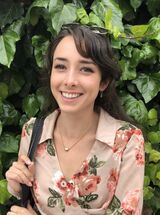
Kara Nelson
Mentor: Stephen DiNardo, PhD
Developmental, Stem Cell, and Regenerative Biology Program
Thesis Title: The Drosophila hematopoietic niche assembles through collective cell migration controlled by Slit-Robo signaling
204d
Mentor Comment: Careful as a scientist, and wicked sharp. Kara’s goal is to ‘do something that matters’. I am confident that she will. I am also grateful she selected our lab as a way station to simply do something no one had done before (rather than something that helped others), while she figures out her next step.
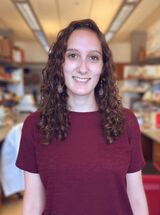
Emily O'Driscoll
Mentor: Ophir Shalem, PhD
Genetics and Epigenetics Program
Thesis Title: Development of pooled perturbation approaches for neurodegenerative phenotypes and therapeutic strategies
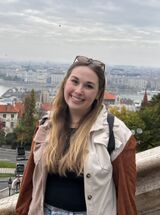
Sarah Offley
Mentor: Alessandro Gardini, PhD
Genetics and Epigenetics Program
Thesis Title: Combinatorial approaches to investigate the early steps of eukaryotic transcription
Research and Lab Description: The Gardini Lab works to understand how mammalian genomes are expressed during cell fate specification, cellular homeostasis, and tumorigenesis. In my doctoral work, I identified and characterized three different protein complexes that regulate the early steps of eukaryotic transcription through a combination of omics, genetics, and biochemistry.
Mentor Comment: Can you find a student who is meticulous and very well-organized, and at the same time willing to embark on high-risk projects and to embrace scientific challenges like no one else? If you'd asked me this question a few years back my answer would have been a quick 'no!'. But then I got to mentor Sarah...well, she is all of that...and so much more! I cannot wait to see her amazing career unfold in the near future.
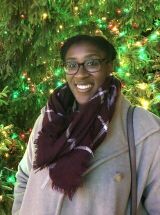
Alexis Oguh
Mentor: Doris Stoffers, MD, PhD
Genetics and Epigenetics Program
Thesis Title: The critical role of the ubiquitin ligase system in pancreatic β cells
Research and Lab Description: I completed my graduate work in Doris Stoffers’s lab. The Stoffers lab uses genetic models to study mechanisms underlying the function of the insulin-secreting pancreatic beta cells. My work explored the roles of the E3 ubiquitin ligase, SPOP, and glucose regulated phosphorylation of the ubiquitin ligase proteasomal degradation system in beta cells.
Post PhD Plans: After defending my thesis, I accepted a job offer as a patent technical specialist at an intellectual property law firm in the Washington, DC area.
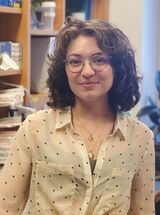
Gina Pacella
Mentor: Brian Capell, MD, PhD
Genetics and Epigenetics Program
Thesis Title: Utx regulates cell differentiation and retinoid signaling non-catalytically in the skin
Mentor Comment: Gina defined the role of the X-linked epigenetic regulator, UTX (KDM6A), in the skin, showing it plays a crucial role in the promotion of skin differentiation and retinoid signaling. Importantly, her work holds potential insights into why certain diseases like skin cancer or autoimmune skin diseases occur at very different frequencies between males and females. Beyond this, Gina was a collaborative, team player who was a joy to have in the lab!
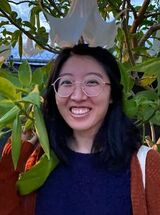
Felicia Peng
Mentor: John Murray, PhD
Genetics and Epigenetics Program
Thesis Title: Measuring mRNA stability across developmental stages and cell types throughout embryogenesis
Mentor Comment: Felicia’s thesis research on RNA turnover regulation in the C. elegans embryo generated a groundbreaking resource and has sparked numerous new questions in the lab and the broader community. She displayed great initiative in learning an impressive array of new experimental and computational approaches which she applied with rigor. In addition, she was a central pillar of the lab as we navigated the Covid pandemic and other major challenges. I am looking forward to seeing what she does next.
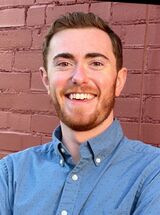
Stefan Peterson
Mentor: Igor Brodsky, PhD
Microbiology, Virology, and Parasitology Program
Thesis Title: Bacterial population dynamics and host factors influencing Yersinia extraintestinal dissemination
Mentor Comment: Stefan was an outstanding PhD student! Stefan joined the Brodsky lab in spring 2020 in the midst of the pandemic. In fact, Stefan was rotating in the lab when we shut down. Stefan navigated the lab research shutdown and associated challenge of developing a project while having to social-distance with poise and good humor. Stefan worked on at least three different projects before landing on what became his final magnum opus – developing a barcoding system to track bacterial infection in vivo. This was a tour-de-force of effort and insight and led to multiple co-authorships on papers from the lab along with revealing new insights into how bacteria spread from the intestinal tissues to systemic sites during bacterial infection. Beyond his work in the lab, Stefan also served as student representative for BGSA, as finance chair of LTBGS, and as a member of the executive board of the Science Policy and Diplomacy Group. I was lucky to have had Stefan as a PhD student in my lab. Congratulations Stefan!
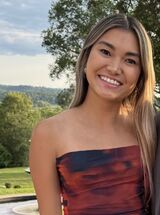
Vi Pham
Mentor: Rebecca Ahrens-Nicklas, MD, PhD
Gene Therapy and Vaccines Program
Thesis Title: Understanding neuropathology and developing gene therapy for Multiple Sulfatase Deficiency
Research and Lab Description: The Ahrens-Nicklas lab focuses on developing novel gene therapies for patients with inborn errors of metabolism (IEMs), rare genetic multi-systemic disorders of biochemical pathways. For my thesis, I developed novel iPSC-based models and ex vivo lentiviral gene therapy strategies for the treatment of patients with a neuronopathic lysosomal storage disorder called Multiple Sulfatase deficiency.
Post PhD Plans: I'm now a post-doc in the labs of Kiran Musunuru and Rebecca Ahrens-Nicklas overseeing the preclinical development of our leading gene editing platforms for a variety of IEMs. I'm completing the IND-enabling studies (i.e. dose-range finding, pharmacology, toxicology, and biodistribution) required to advance our programs to first-in-human trials and am currently seeking my next opportunity to develop novel gene therapies in an industry setting!
2037
Mentor Comment: In short, Vi is amazing. She is the exceedingly rare combination of rigorous, intelligent scientist, creative thinker, and humble, dedicated community member that will allow her to have a huge impact on those around her.
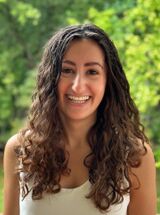
Jacqueline Plesset
Mentor: Gregory Beatty, MD, PhD
Cancer Biology Program
Thesis Title: T cell Trafficking in Pancreatic Ductal Adenocarcinoma
Mentor Comment: Congratulations to Jackie on her thesis, which has advanced our understanding of the role of TLR2 in immune surveillance in pancreatic cancer. Jackie demonstrated exceptional resilience, intellectual curiosity, and dedication to her studies. I wish her all the best as she embarks on the next stage of her career.

Yuwei Qi
Mentor: Andy Minn, MD, PhD
Cell Biology, Physiology, and Metabolism Program
Thesis Title: Tumor-derived RNA danger signal in radiation-induced antitumor immunity
Research and Lab Description: My thesis work elucidated how the structured RNAs are regulated to propagate danger signals between cells and promote immune activation, particularly in the setting of radiation plus immune checkpoint blockade therapy. The Minn lab focuses on investigating the mechanisms of acquired resistance to cancer immunotherapy and identifying potential therapeutic strategies to overcome it. I’m very grateful to work in the Minn lab, where I received inspiring mentorship, constant support, and made close friends.
Post PhD Plans: I’ll be staying in the Minn lab as a postdoc to gain more experience in translational research. In the long term, I plan to pursue a career in the biotech industry focused on immune-related diseases.
Mentor Comment: I was so fortunate to have had Yuwei in my lab as a graduate student. For her thesis, she tackled a highly challenging, long-standing question in the lab with an evasive solution. She brought her determination, resilience, and resourcefulness all to bear, resulting in an unexpected discovery that may be translationally important and yield fundamental biological insight. Few could have displayed the tenacity that Yuwei did, let alone while always bringing to the lab her positivity and acts of generosity. The whole lab is proud of Yuwei!
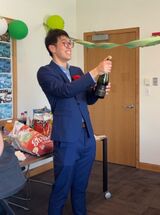
Wenchao Qian
Mentor: Matt Good, PhD
Genetics and Epigenetics Program
Thesis Title: Spatially Ordered Zygotic Genome Activation Fulfills Embryo Quality Control
Mentor Comment: Wenchao has been a dedicated scientist during his PhD tenure at Penn, as well a committed citizen of our lab. I am excited and proud to celebrate his scientific progress after years of hard work. His mindset at the outset was to explore new frontiers in embryo self-organization and development. He took the lead in developing a new technology to spatially control cell division in living embryos. Using this novel methodology he discovered new unappreciated aspects of embryo biology. He identified an essential role for spatial patterning of zygotic genome activation (ZGA) and how embryos utilize a quality control surveillance system to detect proper spatial onset of ZGA. These contributions and discoveries help push our lab forward toward a deeper understanding of the cell biology of early embryo development.
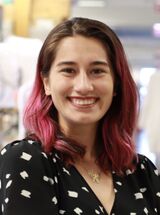
Gabriella Rice
Mentor: Panteleimon Rompolas, MBA, PhD
Developmental, Stem Cell, and Regenerative Biology Program
Thesis Title: Sebaceous Glands, Nails, and the Cornea: Investigating the Role of Sox9 in the Maintenance of Ectodermal-Derived Tissues and Appendages
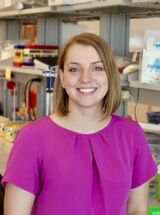
Brianne Roper
Mentor: Audrey Odom John, MD, PhD
Microbiology, Virology, and Parasitology Program
Thesis Title: The essential role of HSP40 in malaria parasite blood stage replication and thermotolerance
Research and Lab Description: My thesis explored how malaria parasites survive human febrile temperature shifts. Working in the John lab was a rewarding experience, defined by rigorous science and strong team support.
Post PhD Plans: After my PhD, I plan to pursue a career in medical communications.
Mentor Comment: Brianne produced a beautiful thesis on how the malaria parasite, Plasmodium falciparum, manages to survive thermal stress. Brianne’s energy and enthusiasm for science was “infectious” and she organized a new research-in-progress series for parasitology labs at Penn. We will miss you, Dr. Roper!
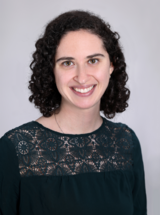
Ronit Schwartz Wertman
Mentor: Igor Brodsky, PhD
Microbiology, Virology, and Parasitology Program
Thesis Title: Sequentially activated death complexes regulate pyroptosis in response to Yersinia infection
Research and Lab Description: I really enjoyed my time in the Brodsky lab. Science wise, the lab provided me with extensive training in microbiology and innate immunity. During my thesis, I studied how the bacterial pathogen Yersinia induces cell death in host immune cells. My thesis identified a novel role for how caspases, the executioner proteases of cell death, communicate with one another, and the molecular complexes that form within our cells when they undergo bacterial-induced cell death. Socially, I felt privileged to work with my PI Igor Brodsky and the rest of my labmates- I learned so much from them and value them as scientists and close friends!
Post PhD Plans: I am currently a postdoctoral fellow at NIAID studying lung inflammation and fungal infections- ultimately, I want to pursue a career in industry/biotech!
Mentor Comment: It was wonderful having Ronit as a PhD thesis student in the lab. Ronit joined my lab in spring 2020 in the midst of the pandemic. Ronit navigated the lab research shutdown and associated challenging of developing a project while having to social-distance with grace and patience. Ronit worked on a longstanding project in the lab that had to do with understanding how cells undergo cell death with ostensibly simultaneous activation of multiple markers of different death pathways. Ronit also contributed to a project on understanding intracellular sensing of bacterial lipopolysaccharides. In addition to her amazing science, Ronit was the lab social coordinator (mostly related to getting the lab to Phillies games). Ronit co-authored multiple manuscripts and mentored multiple students in the lab. I am grateful to have the opportunity to mentor Ronit for her PhD thesis work. Congratulations Ronit!
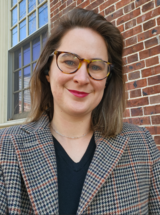
Kelly Sullivan
Mentor: Greg Bashaw, PhD
Developmental, Stem Cell, and Regenerative Biology Program
Thesis Title: Post-translational regulation of axon guidance receptors during midline circuit assembly: Commissureless acts as a substrate adapter in a conserved Nedd4 E3 ubiquitin ligase pathway to promote axon growth across the Drosophila embryonic midline
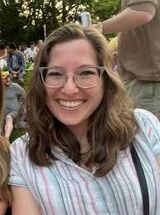
Natalie Toothacre
Mentor: Montserrat Anguera, PhD
Genetics and Epigenetics Program
Thesis Title: Xist RNA Dependent and Independent Mechanisms Regulate Dynamic X Chromosome Inactivation in B Cells
Mentor Comment: Natalie is an outstanding scientist! She learned bioinformatics quickly, and developed allele-specific pipelines for CUT&RUN analyses, along with generating lymphocyte-specific protocols for various epigenomic profiling experiments. She made incredible discoveries for understanding the dynamic nature of epigenetic modification deposition across the Xi in T and B cells, and the regulatory role of Xist RNA for these processes. She is an unstoppable scientific force!

Kimberly Veliz
Mentor: Saar Gill, MD, PhD
Gene Therapy and Vaccines Program
Thesis Title: Uncovering the Role of CD38 in T cells
Mentor Comment: Kim’s thesis research illuminated the role of the activation marker CD38 in T cells. Kim showed that CD38 provides a subtle inhibitory effect on activated T cells and that CRISPR-mediated deletion of CD38 enhances the anti-tumor function of CAR T cells. In addition to her academic achievement, Kim was a model lab citizen and a friendly and pleasant collaborator.
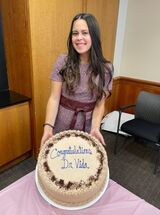
Gabriela Vida
Mentor: Stephen DiNardo, PhD
Genetics and Epigenetics Program
Thesis Title: Niche cytoskeletal architecture is required for proper stem cell signaling and oriented division in the Drosophila testis
Research and Lab Description: My thesis investigates how niche structure is required for the proper behavior of stem cells in the Drosophila testis. I was fortunate to do this work under Steve DiNardo’s mentorship, who I wouldn’t have been able to do this without.
Post PhD Plans: I am now a Post-doctoral fellow in Priya Sivaramakrishnan’s lab at CHOP where I’m investigating transcription elongation rates effects on the developing C. elegans embryo.
Mentor Comment: Agreeing to disagree on fútbol, but agreeing on everything else that mattered. Gabby’s industriousness and stick-to-it-ness will serve her and her future science efforts well, as they did in our lab. And, as a virtual side project (pun) she spearheaded a multilab effort to spread good vibes about little fly testes scRNAseq, making the richness of that data set clear to all.
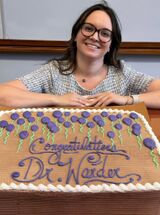
Bailey Warder
Mentor: Stephen DiNardo, PhD
Genetics and Epigenetics Program
Thesis Title: An actomyosin network organizes niche morphology and responds to feedback from stem cells
204e
Research and Lab Description: My thesis work focused on unveiling the mechanisms that shape a functional stem cell niche. I uncovered an exciting feedback loop in which stem cells help shape the niche that guides their behavior. The DiNardo lab was the most supportive environment for my growth as a scientist, and I would not be here today without Steve's constant encouragement, humor, positive attitude, and silliness.
Post PhD plans: I am incredibly lucky to be working as a Postdoc in the lab of Dr. Eric Joyce at Penn. I already have learned so much by surrounding myself with the intelligent and thoughtful lab that Eric has cultivated. Here, I am studying the role of 3-dimensional genome organization on cellular function and organism development.
Mentor Comment: A confident scientist (yes, you are). Bailey took command over her research and became an exemplary model for how to communicate that science. And, did I mention that the work was significant, too?
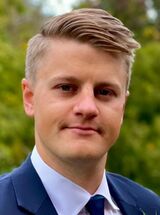
Brandon Wenz
Mentors: Casey Brown, PhD; Ben Voight, PhD
Genetics and Epigenetics Program
Thesis Title: Mapping Chromatin Accessibility in Humans to Decode the Genetic Mechanisms Underlying Complex Traits
Mentor Comment: I feel incredibly fortunate that Brandon found his way to my lab after the untimely passing of his graduate advisor, Casey Brown, who is sorely missed. While I'm certain that my group provided a needed waystation to complete his work, I don't think Brandon appreciated how much his presence in the lab - a dedicated soul committed to working hard, thinking critically, and supporting other lab members - was so extremely valuable to my own group over these past years. I am so impressed by his development with capabilities in both the wet and dry-lab (computational) experimental spaces. Talking science and ideas with him has been a real treat and I will very much miss these exchanges with him. Brandon -- mate -- I'm super proud and excited for you as you are able to take the next steps in your scientific career!
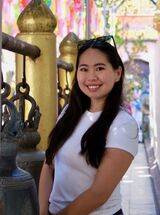
Joanna Wong
Mentor: Andy Vaughan, PhD
Developmental, Stem Cell, and Regenerative Biology Program
Thesis Title: Dynamic Behavior and Lineage Plasticity of the Pulmonary Venous Endothelium
Research and Lab Description: The Vaughan lab is focused on deciphering how the lungs regenerate and the cellular causes of functional versus dysplastic repair. My thesis unveiled the role of pulmonary venous endothelial cells in lung regeneration under the guidance of Dr. Andy Vaughan, who has been an exceptional and supportive mentor.
Mentor Comment: Joanna absolutely killed it in the Vaughan lab!! You’d be hard pressed to find a more intelligent, hard working, kind, funny, and all-around awesome grad student. I owe her tremendously for the contributions she made in making my lab what it is today, and I have no doubt there are big exciting things in her future!!
Combined Degree, MD-PhD
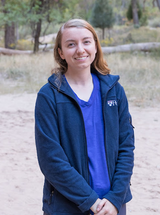
Erin Hollander
Mentor: Ben Stanger, MD, PhD
Cancer Biology Program
Thesis Title: Sugar power: N-glycosylation and its role in anti-tumor immunity
Mentor Comment: I feel quite fortunate to have had Erin as a thesis student. Her project – examining how altering glycosylation patterns in tumor cells influences anti-tumor immunity – involved a windy path of discovery. Erin followed the data where it led, without fear or favor, ultimately identifying a novel phenomenon whereby glycosylation alters tumor cell death thresholds. This was a new area for the lab, and so Erin had to master the field and then teach us all. Now that she has returned to medical school, I know her patients will benefit from her presence as much as we have!

Jingxin Li
Mentor: Arjun Raj, PhD
Genetics and Epigenetics Program
Thesis Title: TRANSCRIPTION FACTOR AP-1 MEDIATES CELLULAR ADAPTATION AND MEMORY FORMATION IN MELANOMA THERAPY RESISTANCE
Mentor Comment: Jess is an incredible scientist and person. Her work stands to upend a lot of how we think about the limitations of gene regulation by showing that cells are able to "learn" by dynamically rewiring their regulation in a sequence-independent manner. She is a model lab member, always ready to lend her insights or a pair of hands to help her fellow lab mates.
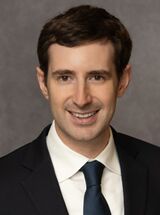
Graham Lobel
Mentors: Malay Haldar, MD, PhD; Celeste Simon, PhD
Cancer Biology Program
Thesis Title: Glutamine availability regulates tissue-specific cDC subsets
Mentor Comment: Graham is a very talented young scientist who combines creativity, imagination, and perseverance to produce high quality work that has significant clinical implications. During his Ph.D., he uncovered the relationship of glutamine availability to anti-tumor immune responses. Given this pathway is now being targeted in clinical trials to treat pancreatic and other cancers, his findings will be critical to how glutamine antagonists could be deployed in future cancer treatments.
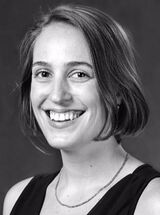
Claudia Lovell
Mentor: Montserrat Anguera, PhD
Genetics and Epigenetics Program
Thesis Title: Xist Deletion in B Cells Results in Systemic Lupus Erythematous Phenotypes
Mentor Comment: Claudia is an incredible scientist! She tackled a challenging project and unraveled the mechanism to explain how Xist deletion in B cells alters B cell fate and function, resulting in autoimmune disease phenotypes in mice. She is a natural leader, and will become an incredible physician scientist!
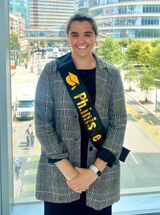
Emily Lubin
Mentor: Elizabeth Bhoj, MD, PhD
1fd7
Genetics and Epigenetics Program
Thesis Title: Germline Histonopathies and Beyond: Integrating patient-directed insights with large-scale data to understand rare Mendelian neurodevelopmental disorders
Research and Lab Description: My research focused on gaining insights into emerging ultra-rare neurodevelopmental disorders caused primarily by germline variants in histone-encoding genes through genotype-phenotype analyses, utilization of AI/ML based next-generation phenotyping, interrogation of publicly-available databases, international collaborations, and most importantly partnerships with patient families.
Post PhD Plans: I have returned to medical school to complete my MD/PhD training and plan to apply to Pediatrics Residency programs this fall!
Mentor Comment: Emily created an elegant thesis bridging clinical and research human genetics. Her work brought together hundreds of patients with germline histone mutations to discover similarities between different syndromes to move forward diagnosis, mechanistic understanding, and targeted treatments more quickly than just individuals.

Yentli Soto Albrecht
Mentor: Douglas Wallace, PhD
Microbiology, Virology, and Parasitology Program
Thesis Title: Mitochondrial function regulates SARS-CoV-2 replication and pathogenesis
Research and Lab Description: My dissertation research uncovered aspects of mitochondrial function that serve to limit SARS-CoV-2 replication and established a causative relationship between subtle mitochondrial variation in the host and differences in murine SARS-CoV-2 pathogenesis, paving the way for metabolically informed antivirals and biomarkers for COVID-19. Despite founding the field of mitochondrial genetics, Dr. Wallace always made time for me: from brainstorming exciting ideas, to developing stories for publications, grant applications, or talks, or helping me cope with my dad developing ALS and dying during my PhD. I truly believe our projects would have been half as successful without his guidance as well as the collaborations and nurturing lab environment he creates.
Post PhD Plans: My supportive thesis mentor, lab, as well as other CHOP and Penn faculty mentors connected me with incredible scientists and physician scientists around the world as I pivot into a very personal endeavor: I’ve decided to switch research fields and leverage my MD-PhD training to eliminate C9orf72 ALS/FTD from my family tree.
Mentor Comment: Ms. Soto Albrecht is an exceptional talent. She joined our team with a background in virology and combined that expertise with mastering the intricacies of mitochondrial biochemistry and genetics. Working with SARS-CoV-2 required studies under BSL-3 level containment. Mrs. Soto Albrecht traveled repeatedly to the National Emerging Infectious Disease Laboratory (NEIDL) in Boston to become certified to work at the BSL-3 level. She then performed rigorous SARS-CoV-2 studies at NIEDL, in the University of Pennsylvania BSL-3 laboratory, and at the Center for Mitochondrial and Molecular Medicine (CMEM) in the Children’s Hospital of Philadelphia (CHOP). Her results demonstrated that SARS-CoV-2 inhibition of mitochondrial function is central to viral pathogenicity. Dr. Soto Albrecht has returned to the clinics to complete her MSTP medical training.





